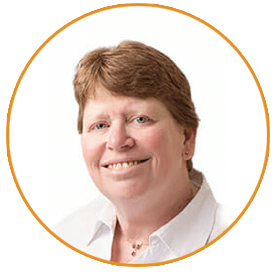Working hours
Mon - Fri: 8am to 5pm
Mon - Fri: 8am to 5pm
Menu

Children develop incredibly quickly in the first two years of their lives. And that means that EYFS professionals working with babies (children under two years old) have a duty to ensure those little people thrive as they should.
Though a vast percentage may not yet be able to talk to communicate their needs, responding to cues and giving them what they need to feel safe is vital. Babies require such secure attachments to be able to navigate their world from a place of safety and fulfil their potential.
It’s vital for all staff members working with this age group to understand not only how to keep babies in their care safe, but also how babies develop holistically and how they form attachments. Are you aware of all the factors that must be considered when caring for babies? Are your staff?
Let’s start with the legal framework itself.
The Early Years Foundation Stage, or EYFS, sets out to standardise the provision that settings offer for children up to 5 years of age. This is to make sure that all children are kept safe and well and that they are well-equipped to take on the big world of school and beyond once they leave.
Through learning and development requirements, the EYFS makes sure that activities and experiences planned and executed by childcare settings adhere to defined areas of learning and development. The requirements cover everything from early learning goals to how to assess progress and communicate with parents and carers.
Alongside the Learning & Development requirements, the EYFS ensures babies and children are kept safe through safeguarding and welfare requirements that providers must take to comply.
Here at MBK Group, we’ve put together 5 fundamental factors to consider when working with babies. Each factor is crucial to giving babies the care they need and giving them the best start in their Early Years’ journey.
Babies need secure attachments. It’s that simple. So when you’re looking after babies, building loving, trusting, positive relationships is vital. It’s this connection to their caregivers that helps a growing brain to organise itself whilst the child develops, and it makes them feel safe.
To ensure strong relationships, practitioners must build trust by consistently meeting the babies’ needs through warm and gentle interactions. It is the caregiver’s role to help the baby to feel secure and loved.
So how can you begin to develop strong, positive relationships with babies? They may not be able to talk yet, but there are plenty of pointers to be guided by:
As described by the EYFS framework, each child in an early years setting must be allocated a key person. As well as helping the child become familiar with the setting and offering a settled relationship with the child, having a good system in place that focuses on developing a strong partnership with parents or carers is imperative and will strengthen the relationships with the children themselves.
The EYFS also states that at least half of all staff in early years settings must have received training that specifically addresses the care of babies.
Food is important for everyone, but when it comes to keeping babies safe and well at mealtimes, there is plenty to consider.
All practitioners involved in preparing and handling the food, as well as feeding and supervising babies at mealtimes, must have a strong understanding of safe foods for young babies as well as any intolerances or allergies among the children.
Not only does each weaning journey look different, but babies and toddlers are at high risk of choking and this risk is elevated through unsuitable foods. Solid foods being introduced must be prepared properly to reduce this risk, such as cutting small round fruits, such as grapes or strawberries, lengthways and into quarters.
Babies and toddlers should never be left alone when they are eating and should be seated safely in a highchair or low chair at mealtimes depending on their age and ability.
Babies and young children need a lot of sleep, so having safe and cosy sleep areas is important. These areas should be warm, inviting and comfortable to ensure babies feel secure and can get the rest they need.
During their naps and rest times, which will be different for each child, babies should be monitored regularly and thoroughly to make sure they are safe. This means that practitioners need to stay within sight and hearing distance of sleeping and resting babies so that breathing and skin colour can easily be checked.
Children of all ages should never rest or sleep with their face covered, and clothing and comforters that may cause risk to them during their sleep should be removed or changed. Babies should also sleep on their backs, as recommended by the Foundation of Sudden Infant Death Syndrome (FSIDS).
To ensure safe sleep practices are in place, have a clear policy that is reviewed regularly and make sure all staff understand what it both means and looks like in a practical sense.
In your provision, babies are developing skills that will serve them for life. They might take their first steps with you, or learn their first couple of words!
Your setting should be organised to meet the needs and extend the learning of children of different ages. Opportunities for play and exploration should be ample and provide sufficient age and stage-related risk and challenge while remaining safe at all times.
Outdoor play offers a whole world of different experiences for toddlers in your setting, including physical development and movement, but makes for rich quality time for babies of all ages.
Over the last 2 years, it has become pretty difficult to find and recruit nursery workers. The ongoing struggle to bring on board new practitioners might have put training on the back foot; however, it’s important to remember that proper and effective training is a legal requirement. Without it, not only could your setting be putting children at risk, but it could result in poor inspection grading.
Here are some qualifications and courses to think about.
From September 2016, staff with childcare level 2 and 3 qualifications must have a full certificate to be included in care ratios.
Safeguarding training can support practitioners in recognising signs of potential abuse and how to report concerns correctly.
Some children need extra help in learning how to express themselves. Whilst many practitioners will have some experience with appropriate strategies, your setting SENCO may be able to help with in-house training.
Ongoing training in all areas is a surefire way of tooling up your staff and ensuring the children at your nursery are nurtured and looked after.
Looking after babies requires a deep level of understanding about the way they learn and develop. And to comply with the statutory framework, at least half of all staff must have received training that specifically addresses the care of babies.
Worried about an upcoming inspection? Interested in upskilling your baby room practitioner team?
Our ‘Working With Babies’ courses are designed to give practitioners the knowledge they need to carry out their roles confidently.
Find out more about our upcoming courses here.
Don’t need to book training sessions but looking for something you can use yourself in-house? Sign up here for our free download covering the 5 Fundamental Factors When Working With Babies.
With the ever-changing regulations and guidance, join our monthly newsletter to stay current and learn more about running a better childcare setting.
Simply enter your details below to join our mailing list.
"*" indicates required fields
By completing this form you are agreeing to our privacy policy You can unsubscribe at any time

Millennium House, High Street,
Studley, Warwickshire, B80 7HJ.